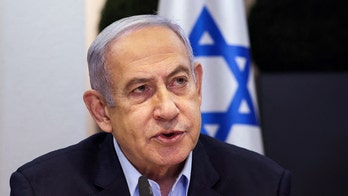A hundred days down, 1,361 more to go.
It's an equation President Obama wakes up facing on Thursday morning, with one symbolic milestone behind him but a stew of complicated troubles ahead.
Most immediately, his administration will have to make a call on automaker Chrysler's restructuring plan -- the automaker had until Thursday to present the federal government with a plan to reduce its debt and accept an alliance with a company like Italy's Fiat.
Chrysler reportedly has struck such a deal, and Obama said Wednesday night he's feeling more optimistic about Chrysler's future.
From there, the administration has to decide how deeply it will get involved in the running of General Motors in order to keep the company from collapse.
And other hurdles stand as far as the eye can see.
Obama needs to find an orderly and safe way to carry out his plan to close Guantanamo Bay.
He needs to draw down the fight in Iraq while intensifying pressure on the Taliban and Al Qaeda along the Afghanistan-Pakistan border.
He needs to drag the nation out of recession, while reforming the way the government invests in energy, education and health care through his multitrillion-dollar budget.
Obama addressed these challenges Wednesday night during his prime-time press conference, and signaled that if given his druthers he'd focus on just a few of those problems.
"I would love a nice lean portfolio," he said. But he conceded his administration has been handed a "big set of challenges."
As he reviewed his first 100 days in office, Obama defended his heavy-handed approach to those challenges. He described the meltdowns in the auto and financial industries as unwanted distractions that his administration had to address with federal intervention, and denied wanting to grow government.
"I don't want to run auto companies. I don't want to run banks. I've got two wars I've got to run already -- I've got more than enough to do," he said. "So the sooner we can get out of that business, the better off we're going to be. We are in unique circumstances."
He said he's "amused" by charges that he wants to grow government.
"I want to disabuse people of this notion that somehow we enjoy meddling in the private sector," Obama said.
"If you could tell me right now that when I walked into this office, that the banks were humming, the autos were selling and that all you had to worry about was Iraq, Afghanistan, North Korea, getting health care passed, figuring out how to deal with energy independence, deal with Iran and a pandemic flu, I would take that deal."
Obama also looked back even further, complimenting his predecessor's preparations to fight a possible flu pandemic while accusing the Bush administration of sanctioning torture.
Obama pledged to do whatever is required to protect the homeland but urged the country not to use "short cuts" to fight extremists. Asked whether the Bush administration had tortured detainees despite it being against U.S. law, Obama responded, "I believe that waterboarding is torture."
Obama defended his decisions to ban harsh interrogation techniques and release a string of legal memos that outlined the justification for such "enhanced" techniques under the Bush administration, like waterboarding which was eventually abandoned.
Obama overall expressed confidence in his early accomplishments but suggested he's only begun to implement his ambitious agenda.
"I think we're off to a good start, but it's just a start," Obama said Wednesday. "I'm proud of what we've achieved, but I'm not content. I'm pleased with our progress, but I'm not satisfied."
On the economy, Obama praised Congress for just hours earlier passing a $3.4 trillion version of his budget blueprint, calling that a key plank in his plans for economic recovery. Obama warned that more jobs and homes will be lost before the recession ends, but he pledged "unrelenting, unyielding" effort from his administration to strengthen American prosperity and security.
"We have to lay a new foundation for growth -- a foundation that will strengthen our economy and help us compete in the 21st century," Obama said.
He held the press conference after holding two other high-profile events, to mark the end of the opening phase of a presidency that has pressed an ambitious agenda even as it has been hit with mounting domestic and international challenges.
In that context, the sudden flu outbreak that threatens to reach pandemic levels has added to the variety -- but not the intensity -- of challenges being tackled by the young administration, which has fanned out in recent days to assure the public it is taking every precaution to stem the spread of the virus.
Obama said Wednesday the government is taking "utmost precautions and preparations" and is prepared to do "whatever it takes to control the impact of this virus."
But he said his administration is not recommending closing the U.S.-Mexico border, saying he's been advised doing so would be "akin to closing the barn door after the horses are out."
Instead, he urged Americans to assume "great vigilance" in preventing the spread of the strain.




